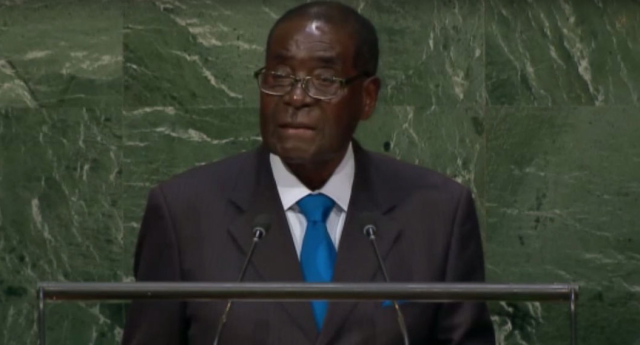-
Tips for becoming a good boxer - November 6, 2020
-
7 expert tips for making your hens night a memorable one - November 6, 2020
-
5 reasons to host your Christmas party on a cruise boat - November 6, 2020
-
What to do when you’re charged with a crime - November 6, 2020
-
Should you get one or multiple dogs? Here’s all you need to know - November 3, 2020
-
A Guide: How to Build Your Very Own Magic Mirror - February 14, 2019
-
Our Top Inspirational Baseball Stars - November 24, 2018
-
Five Tech Tools That Will Help You Turn Your Blog into a Business - November 24, 2018
-
How to Indulge on Vacation without Expanding Your Waist - November 9, 2018
-
5 Strategies for Businesses to Appeal to Today’s Increasingly Mobile-Crazed Customers - November 9, 2018
Confusion over Confucius? Zimbabwe’s Mugabe nets Chinese language peace prize
The prize, not officially endorsed by the Chinese government, was established in 2010.
Advertisement
The previous winners of the award include: Lien Chan, former Taiwanese Kuomintang chairman, who met regularly with Chinese Communist Party leaders (2010), Vladimir Putin, Russian president (2011), Kofi Annan, former United Nations secretary general and Yuan Longping, agriculture professor (2012) and the 2013 and 2014 edition had as winners, Yi Cheng (former president of China’s Buddhist Association) and Fidel Castro (former president of Cuba) respectively.
“Confucius… is a symbol of honesty, forbearance, respect, and humane wisdom”, says Lionel Jensen, an associate professor of language and culture at Notre Dame. In a statement posted to Bulaway 24, he said his party is “utterly disgusted” that Mugabe got the award.
Scholars like Jensen, author of Manufacturing Confucianism: Chinese Traditions and Universal Civilisation, are critical of the use of Confucius to promote authoritarianism.
Large swaths of Zimbabwe’s population have suffered devastating poverty which, according to the New York Times, was due to crippling inflation rates resulting from economic reforms ushered in during Mugabe’s reign.
Officially Confucius was born in 551 BC near the city of Qufu in what is now Shandong Province.
Advertisement
The organizers of the Confucius Peace Prize say Mugabe has improved the educational system in the country and empowered black people with the redistribution of this land. He has frequently been criticized by the West for his alleged corruption and disregard for human rights and earlier this year, the Guardian reported that new evidence showed Mugabe was implicated in massacres carried out during the 1980s and 1990s that resulted in the deaths of 20,000 civilians. Other said the ceremony should take place at The Hague in the Netherlands, which is home to the global Criminal Court.




























